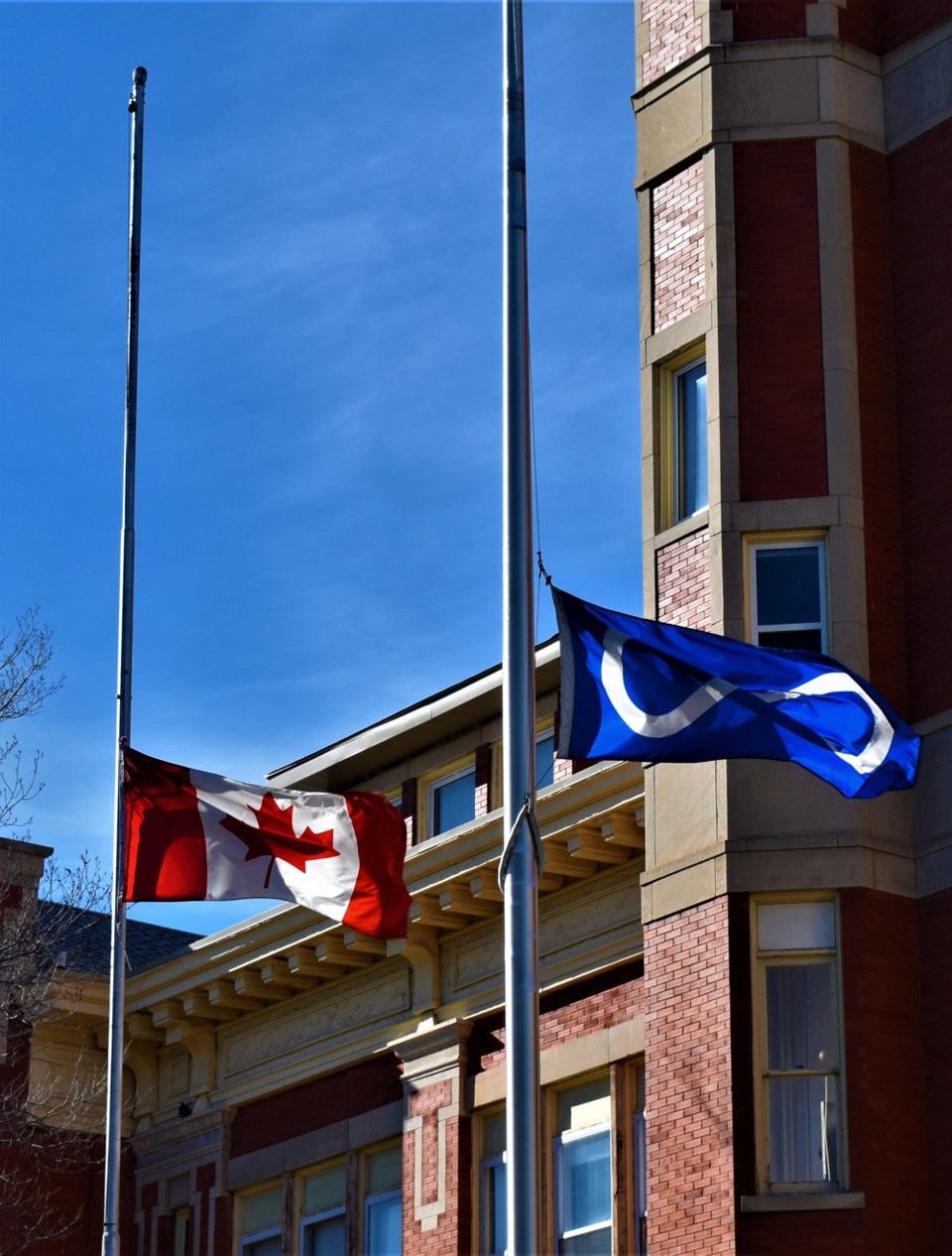SASKATOON — Métis Nation-Saskatchewan vice-president Michelle LeClair, along with Elders Antoinette LaFleur and Emilien Janvier will be part of the Métis National Council delegation that will meet with Pope Francis in Vatican City next week.
MNC representatives will leave Saturday with the Canadian delegation that included elders, knowledge keepers, residential school survivors and youth delegates from the Assembly of First Nations and the Inuit Tapiriit Kanatami.
LeFleur, a member of the Survivors of Île-á-la-Crosse Boarding School Steering Committee, said she is humbled to be given the chance to tell the story of the intergenerational trauma to Métis citizen survivors and their families caused by attending residential schools.
“It’s so hard for people to understand everything that happened at Île-à-la-Crosse school — not far from where so many of us live now. Our healing journey needs to make sure that the church understands exactly what happened to us under its watch,” said Le Fleur.
Janvier, another survivor of Île-á-la-Crosse Boarding School, will deliver a prayer in his Dene language and ultimately hopes for an apology from the Catholic Church.
“Let’s make it right what was done to us. Let me go to bed without this on my mind. Let’s move on,” said Janvier. “We can learn from our mistakes and improve upon them. We talk about truth and reconciliation, who do you reconcile with without sorry?”
The experience of Métis citizens who attended the Île-à-la-Crosse and Timber Bay residential schools remain forgotten and ignored, particularly the federal government, said MN-S in a statement. Survivors and their families were denied the Indian Residential School Settlements and apologies received by other survivors.
Île-à-la-Crosse, which opened in the 1820s and operated until the 1970s, was a boarding school that housed northern Saskatchewan children. It’s one of the oldest residential schools in the country, however, Métis survivors were left out as the Canadian federal government still has not given them compensation and denied their recognition that others had already received.
MN-S, in a statement, said survivors and their families were never compensated for losing their culture, languages and traditions while enduring the abuse committed by administrators of the school.
The MN-S, a committee representing Île-à-la-Crosse Boarding School survivors and the Canadian government, signed a memorandum of understanding in 2019 to begin discussions in resolving the legacy of the residential school.
MN-S vice president LeClair said that every year they lose survivors, that’s why it is important to continue the work to address and resolve the issues.
“Time is of the essence. We need closure for boarding and residential school survivors and their families. Saskatchewan has some of the oldest residential schools in the country, and our communities have suffered inter-generationally for far too long,” said LeClair, who is also the MN-S minister of justice and lead on Métis Children and Residential School Graves.
The three Indigenous groups will have separate meetings with Pope Francis starting with the Métis delegates having a private encounter with the pontiff at 10 a.m. on March 28 and the ITK representatives at 11 a.m. the same day.
The AFN delegation’s meeting with the pope starts at 10:30 a.m. March 31 with the final audience by the entire Canadian delegation set on April 1. Pope Francis is expected to publicly respond after listening to the delegates’ stories.





